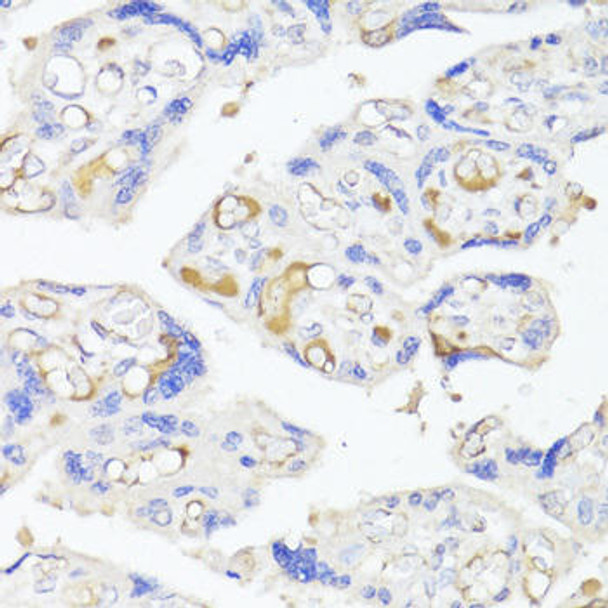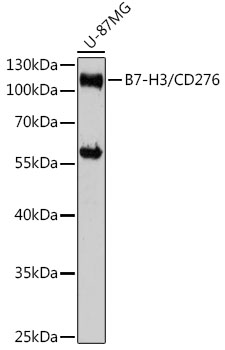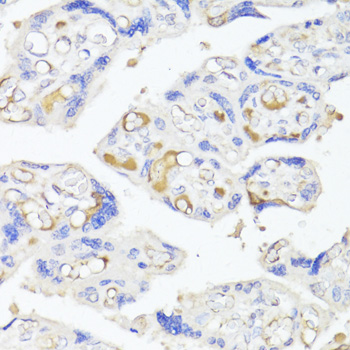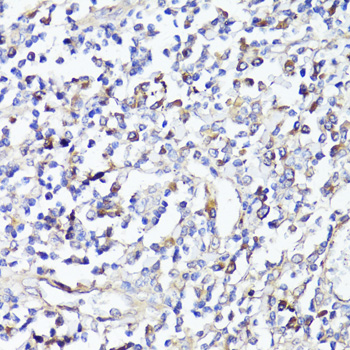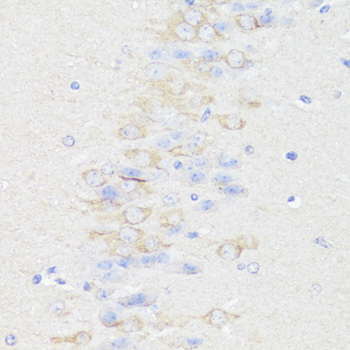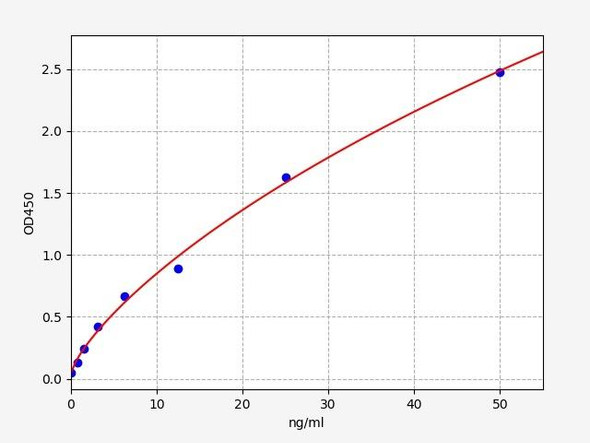Anti-B7-H3/CD276 Antibody (CAB17216)
- SKU:
- CAB17216
- Product type:
- Antibody
- Reactivity:
- Human
- Mouse
- Host Species:
- Rabbit
- Isotype:
- IgG
- Antibody Type:
- Polyclonal Antibody
- Research Area:
- Cell Biology
Frequently bought together:
Description
| Antibody Name: | Anti-B7-H3/CD276 Antibody |
| Antibody SKU: | CAB17216 |
| Antibody Size: | 20uL, 50uL, 100uL |
| Application: | WB IHC |
| Reactivity: | Human, Mouse |
| Host Species: | Rabbit |
| Immunogen: | A synthetic peptide corresponding to a sequence within amino acids 100-200 of human B7-H3/CD276 (NP_001019907.1). |
| Application: | WB IHC |
| Recommended Dilution: | WB 1:500 - 1:2000 IHC 1:50 - 1:200 |
| Reactivity: | Human, Mouse |
| Positive Samples: | U-87MG |
| Immunogen: | A synthetic peptide corresponding to a sequence within amino acids 100-200 of human B7-H3/CD276 (NP_001019907.1). |
| Purification Method: | Affinity purification |
| Storage Buffer: | Store at -20°C. Avoid freeze / thaw cycles. Buffer: PBS with 0.02% sodium azide, 50% glycerol, pH7.3. |
| Isotype: | IgG |
| Sequence: | LAQG NASL RLQR VRVA DEGS FTCF VSIR DFGS AAVS LQVA APYS KPSM TLEP NKDL RPGD TVTI TCSS YQGY PEAE VFWQ DGQG VPLT GNVT TSQM ANEQ G |
| Gene ID: | 80381 |
| Uniprot: | Q5ZPR3 |
| Cellular Location: | |
| Calculated MW: | 33kDa/52kDa/57kDa |
| Observed MW: | 120kDa |
| Synonyms: | CD276, 4Ig-B7-H3, B7-H3, B7H3, B7RP-2 |
| Background: | The protein encoded by this gene belongs to the immunoglobulin superfamily, and thought to participate in the regulation of T-cell-mediated immune response. Studies show that while the transcript of this gene is ubiquitously expressed in normal tissues and solid tumors, the protein is preferentially expressed only in tumor tissues. Additionally, it was observed that the 3' UTR of this transcript contains a target site for miR29 microRNA, and there is an inverse correlation between the expression of this protein and miR29 levels, suggesting regulation of expression of this gene product by miR29. Alternatively spliced transcript variants encoding different isoforms have been found for this gene. |
| UniProt Protein Function: | CD276: May participate in the regulation of T-cell-mediated immune response. May play a protective role in tumor cells by inhibiting natural-killer mediated cell lysis as well as a role of marker for detection of neuroblastoma cells. May be involved in the development of acute and chronic transplant rejection and in the regulation of lymphocytic activity at mucosal surfaces. Could also play a key role in providing the placenta and fetus with a suitable immunological environment throughout pregnancy. Both isoform 1 and isoform 2 appear to be redundant in their ability to modulate CD4 T-cell responses. Isoform 2 is shown to enhance the induction of cytotoxic T-cells and selectively stimulates interferon gamma production in the presence of T-cell receptor signaling. Belongs to the immunoglobulin superfamily. BTN/MOG family. 4 isoforms of the human protein are produced by alternative splicing. |
| UniProt Protein Details: | Protein type:Membrane protein, integral Chromosomal Location of Human Ortholog: 15q23-q24 Cellular Component: external side of plasma membrane; integral to membrane Molecular Function:protein binding; receptor binding Biological Process: cell proliferation; immune response; negative regulation of inflammatory response; negative regulation of interferon-gamma biosynthetic process; negative regulation of interleukin-2 biosynthetic process; negative regulation of T cell proliferation; positive regulation of bone mineralization; positive regulation of interferon-gamma biosynthetic process; positive regulation of osteoblast differentiation; positive regulation of T cell proliferation; regulation of immune response; T cell activation |
| NCBI Summary: | The protein encoded by this gene belongs to the immunoglobulin superfamily, and thought to participate in the regulation of T-cell-mediated immune response. Studies show that while the transcript of this gene is ubiquitously expressed in normal tissues and solid tumors, the protein is preferentially expressed only in tumor tissues. Additionally, it was observed that the 3' UTR of this transcript contains a target site for miR29 microRNA, and there is an inverse correlation between the expression of this protein and miR29 levels, suggesting regulation of expression of this gene product by miR29. Alternatively spliced transcript variants encoding different isoforms have been found for this gene. [provided by RefSeq, Sep 2011] |
| UniProt Code: | Q5ZPR3 |
| NCBI GenInfo Identifier: | 74757248 |
| NCBI Gene ID: | 80381 |
| NCBI Accession: | Q5ZPR3.1 |
| UniProt Secondary Accession: | Q5ZPR3,Q6P5Y4, Q6UXI2, Q8NBI8, Q8NC34, Q8NCB6, Q9BXR1 |
| UniProt Related Accession: | Q5ZPR3 |
| Molecular Weight: | |
| NCBI Full Name: | CD276 antigen |
| NCBI Synonym Full Names: | CD276 molecule |
| NCBI Official Symbol: | CD276 |
| NCBI Official Synonym Symbols: | B7H3; B7-H3; B7RP-2; 4Ig-B7-H3 |
| NCBI Protein Information: | CD276 antigen |
| UniProt Protein Name: | CD276 antigen |
| UniProt Synonym Protein Names: | 4Ig-B7-H3; B7 homolog 3; B7-H3; Costimulatory molecule; CD_antigen: CD276 |
| Protein Family: | CD276 antigen |
| UniProt Gene Name: | CD276 |
| UniProt Entry Name: | CD276_HUMAN |

